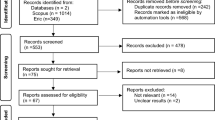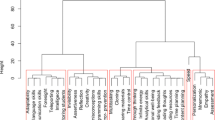Abstract
This study examines how the leaders of technology integration in educational institutions - school principals and ICT facilitators - assess systemic changes that occurred in their schools. The study collected the data from Israeli elementary schools towards the end of the third and the fourth years of the gradual National ICT program. The research questions explored (1) the predictors of the general school ICT culture and (2) changes over time in the general school ICT culture and its components. An online questionnaire was distributed to all elementary schools in the Northern District and filled out jointly by the school principal and ICT facilitator. A total of 392 questionnaires (91.2 % response rate) were analyzed. The following predictors explained 63 % of variance in general school ICT culture: the percent of teachers who frequently use ICT in lessons, using technology for enhance pedagogy, teachers’ digital competence, digital content use, its design by teachers, pedagogical update of class website, school portal update (negative predictor), e-communication within school staff, and teacher-parents e-communication. Regarding the impact of time, the results indicated that between the 3rd and 4th years of ICT integration significant changes still occur in the general school ICT culture and most of its components.

Similar content being viewed by others
References
Aesaert, K., van Braak, J., Van Nijlen, D., & Vanderlinde, R. (2015). Primary school pupils’ ICT competences: extensive model and scale development. Computers & Education, 81, 326–344.
Albion, P. R., Tondeur, J., Forkosh-Baruch, A., & Peeraer, J. (2015). Teachers’ professional development for ICT integration: towards a reciprocal relationship between research and practice. Education and Information Technologies, 20, 655–673.
Avidov-Ungar, O., & Shmir-Inbal, T. (2013). Empowerment patterns of leaders in ICT and school strengths following the implementation of national ICT reform. Journal of Information Technology Education: Innovations in Practice, 12, 141–158.
Avidov-Unger, O., & Eshet-Alklai, Y. (2014). TPACK revisited: A systematic perspective on measures for predicting effective integration of innovative technologies in school systems. Journal of Cognitive Education and Psychology, 13(1), 19–31.
Barzilai, S., & Blau, I. (2014). Scaffolding game-based learning: Impact of learning achievements, perceived learning, and game experiences. Computers & Education, 70, 65–79.
Blau, I. (2011). E-collaboration within, between, and without institutions: towards a better functioning of online groups through networks. International Journal of e-Collaboration, 7, 22–36.
Blau, I. (2014). Comparing online opportunities and risks among Israeli children and youth Hebrew and Arabic speakers. New Review of Hypermedia and Multimedia, 20(4), 281–299.
Blau, I., & Caspi, A. (2009). What type of collaboration helps? Psychological ownership, perceived learning, and outcome quality of collaboration using Google Docs. In Y. Eshet-Alkalai, A. Caspi, S. Eden, N. Geri, & Y. Yair (Eds.), Learning in the technological era (pp. 48–55). Ra’anana: Open University of Israel.
Blau, I., & Hameiri, M. (2010). Implementing technological change at schools: the impact of online communication with families on teacher interactions through a learning management system. Interdisciplinary Journal of E-Learning and Learning Objects, 6, 245–257.
Blau, I., & Hameiri, M. (2012). Teachers-families online interactions and gender differences in parental involvement through school data system: do mothers want to know more than fathers about their children? Computers & Education, 59, 701–709.
Blau, I., & Neuthal, T. (2012). Tweeting educational technology: a tale of professional community of practice. International Journal Cyber-Society and Education - IJCSE, 5(1), 75–80.
Blau, I., & Peled, Y. (2012). Teachers’ openness to change and attitudes towards ICT: Comparison of Laptop per Teacher and Laptop per Student programs. Interdisciplinary Journal of E-Learning and Learning Objects, 8, 73–82.
Blau, I., & Presser, O. (2013). e-Leadership of school principals: increasing school effectiveness by a school data management system. British Journal of Educational Technology, 44(6), 1000–1011.
Blau, I., Mor, N., & Neuthal, T. (2013). Interacting for learning: digital portfolios for a learning community in a university course. Learning, Media and Technology, 38(3), 241–255.
Blau, I., Peled, Y., & Nusan, A. (2014). Technological, pedagogical and content knowledge in one-to-one classroom: teachers developing “digital wisdom”. Interactive Learning Environments, 1–16. doi: 10.1080/10494820.2014.978792.
Caspi, A., & Blau, I. (2011a). Collaboration and psychological ownership: how does the tension between the two influence perceived learning? Social Psychology of Education: An International Journal, 14, 283–298.
Caspi, A., & Blau, I. (2011b). Media choice for intra-school communication: the role of environment, user, and medium. Journal of Educational Multimedia and Hypermedia, 20(4), 337–360.
Collaborative learning models. (2014). Israeli Ministry of Education. http://cms.education.gov.il/EducationCMS/Units/MadaTech/ICTInEducation/Tfukot/LemidaShitufit/Misgarot.htm [in Hebrew].
Davies, R. S., & West, R. E. (2014). Technology integration in schools. In J. M. Spector, M. D. Merrill, J. Elen, & M. J. Bishop (Eds.), Handbook of Research on Educational Communications and Technology (pp. 841–853). Springer: New York.
Dillenbourg, P. (1999). What do you mean by collaborative learning? In P. Dillenbourg (Ed.), Collaborative-learning: cognitive and computational approaches (pp. 1–19). Oxford: Elsevier.
Dimmock, C., Kwek, D., & Toh, Y. (2013). Leadership for 21st century learning in Singapore’s high-performing schools. Educational Research and Innovation Leadership for 21st Century Learning (pp. 107–134). Center for Educational Research and Innovation, OECD Publishing.
Dirckinck-Holmfeld, L., Hodgson, V. E., & McConnell, D. (2012). Exploring the theory, pedagogy and practice of networked learning. Springer.
Duncan-Howell, J. (2010). Teachers making connections: online communities as a source of professional learning. British Journal of Educational Technology, 41, 324–340.
Elgali, Z., & Kalman, Y. M. (2011). Three decades of National ICT Programs in the Israeli education system. In Y. Eshet-Alkalai, A. Caspi, & S. Eden (Eds.), Learning in the technological era (pp. 31–37). Ra’anana: The Open University of Israel [in Hebrew].
Ertmer, P. A., & Ottenbreit-Leftwich, A. T. (2010). Teacher technology change: how knowledge, confidence, beliefs, and culture intersect. Journal of Research on Technology in Education, 42(3), 255–284.
Fishman, B., & Krajcik, J. S. (2003). What does it mean to create sustainable science curriculum innovations? Science Education, 87(4), 564–573.
Grant, L. (2011). I’m a completely different person at home: using digital technologies to connect learning between home and school. Journal of Computer Assisted Learning, 27, 292–302.
Gunn, C. (2010). Sustainability factors for e-learning initiatives. Research in Learning Technology, 18(2), 89–103.
Hall, G. E. (2013). Evaluating change processes: assessing extent of implementation -constructs, methods and implications. Journal of Educational Administration, 51(3), 264–289.
Hatlevik, O. E., Guðmundsdóttir, G. B., & Loi, M. (2015). Digital diversity among upper secondary students: a multilevel analysis of the relationship between cultural capital, self-efficacy, strategic use of information and digital competence. Computers & Education, 81, 345–353.
Hauge, T. E. & Norenes, S. O. (2014). Collaborative leadership development with ICT: Experiences from three exemplary schools. International Journal of Leadership in Education, 1–25. doi:10.1080/13603124.2014.963689.
Ho, L.-H., Hung, C.-L., & Chen, H.-C. (2013). Using theoretical models to examine the acceptance behavior of mobile phone messaging to enhance parent-teacher interactions. Computers & Education, 61, 105–114.
Ilomäki, L. (2008). The effects of ICT on school: teachers’ and students’ perspectives. Annales Universitatis Turkuensis B 314. Retrieved August 10, 2015 from https://oa.doria.fi/bitstream/handle/10024/42311/B314.pdf?sequence=3.
Ishii, D. (2014). Open planner: Using google calendars for cloud based personal and collaborative lesson planning. Retrieved August 10, 2015 from http://etec.hawaii.edu/proceedings/masters/2014/ishii.pdf.
Kali, Y., Levin-Peled, R., & Dori, Y. (2009). The role of design-principles in designing courses that promote collaborative learning in higher-education. Computers in Human Behavior, 5, 1067–1078.
Kali, Y., McKenney, S., & Sagy, O. (2012). Teachers as designers of technology enhanced learning. Instructional Science, 43(2), 173–179.
Kirschner, P. A. (2015). Do we need teachers as designers of technology enhanced learning? Instructional Science, 43(2), 309–322.
Koh, J. H. L., Chai, C. S., Hong, H. Y., & Tsai, C. C. (2014). A survey to examine teachers’ perceptions of design dispositions, lesson design practices, and their relationships with technological pedagogical content knowledge (TPACK). Asia-Pacific Journal of Teacher Education, 1–14. doi: 10.1080/1359866X.2014.941280.
Kozma, R. B. (2010). ICT policies and educational transformation. Retrieved August 10, 2015 from http://www.unesco.org/new/fileadmin/MULTIMEDIA/HQ/ED/ICT/pdf/ICTpoliedtran.pdf.
Lakshminarayanan, R., Kumar, B., & Raju, M. (2013). Cloud computing benefits for educational institutions. Retrieved August 10, 2015 from http://arxiv.org/ftp/arxiv/papers/1305/1305.2616.pdf
Ledbetter, A. M., & Finn, A. N. (2013). Teacher technology policies and online communication apprehension as predictors of learner empowerment. Communication Education, 62(3), 301–317.
Matuk, C. F., Linn, M. C., & Eylon, B. S. (2015). Technology to support teachers using evidence from student work to customize technology-enhanced inquiry units. Instructional Science, 43(2), 229–257.
McKenney, S., & Mor, Y. (2015). Supporting teachers in data-informed educational design. British Journal of Educational Technology, 46(2), 265–279.
Mishra, P., & Koehler, M. (2006). Technological pedagogical content knowledge: a framework for teacher knowledge. The Teachers College Record, 108(6), 1017–1054.
Mor, Y., Ferguson, R., & Wasson, B. (2015). Editorial: learning design, teacher inquiry into student learning and learning analytics: a call for action. British Journal of Educational Technology, 46(2), 221–229.
National ICT Program. (2014). Israeli Ministry of Education. http://cms.education.gov.il/EducationCMS/UNITS/MadaTech/ICTInEducation [in Hebrew].
Peled, Y., Kali, Y., & Dori, Y. J. (2011). School principals’ influence on science teachers’ technology implementation: a retrospective analysis. International Journal of Leadership in Education, 14(2), 229–245.
Peled, Y., Blau, I, & Grinberg, R. (2015). Does 1:1 computing in a junior high-school change the pedagogical perspectives of teachers and their educational discourse? Interdisciplinary Journal of e-Skills and Lifelong Learning - IJELL, 11, 257–271.
Penuel, W. R., & Gallagher, L. P. (2009). Preparing teachers to design instruction for deep understanding in middle school Earth science. Journal of the Learning Sciences, 18(4), 461–508.
Perelman, U. (2014). What are the relationships between teachers’ engagement with management information systems and their sense of accountability? Interdisciplinary Journal of E-Learning and Learning Objects, 10, 217–227.
Rogers, E. M. (2003). Diffusion of innovations (5th ed.). New York: Free press.
Schön, D. A. (1992a). Designing as reflective conversation with the materials of a design situation. Research in Engineering Design, 3(3), 131–147.
Schön, D. A. (1992b). The theory of inquiry: Dewey’s legacy to education. Curriculum Inquiry, 22(2), 119–139.
Shamir-Inbal, T. & Kali, Y. (2007). The relation between schoolteachers’ perceptions about collaborative learning and their employment of online instruction. In C. A. Chinn, G. Erkens & S. Puntambekar (Eds.), Proceedings of the Computer Supported Collaborative Learning (CSCL) 2007: Mice, Minds and Society (pp. 292–300). International Society of the Learning Sciences, Inc.
Shamir-Inbal, T., & Kali, Y. (2009). Teachers as designers of online activities: the role of socio-constructivist pedagogies in sustaining implementation. Design Principles & Practices: An International Journal, 3(1), 89–100.
Stahl, G., & Hesse, F. (2009). Practice perspectives in CSCL. International Journal of Computer Supported Collaborative Learning, 4(2), 109–114.
Tay, L. Y., Lim, C. P., & Lim, S. K. (2015). Differences in ICT usage across subject areas a case of an elementary school in Singapore. Journal of Educational Computing Research. doi:10.1177/0735633115585930.
Thurlings, M., Evers, A. T., & Vermeulen, M. (2014). Toward a model of explaining teachers’ innovative behavior - A literature review. Review of Educational Research. doi:10.3102/0034654314557949.
Trenkov, L. (2014). Managing teacher-student interaction via WhatsApp platform. EDULEARN14 Proceedings, 6596–6600.
Voogt, J., Westbroek, H., Handelzalts, A., Walraven, A., McKenney, S., Pieters, J., et al. (2011). Teacher learning in collaborative curriculum design. Teaching and Teacher Education, 27(8), 1235–1244.
Wang, S. K., Hsu, H. Y., Reeves, T. C., & Coster, D. C. (2014). Professional development to enhance teachers’ practices in using information and communication technologies (ICTs) as cognitive tools: lessons learned from a design-based research study. Computers & Education, 79, 101–115.
Acknowledgments
The participation in this research was anonymous. The study was approved by the institutional Ethics Committee.
Author information
Authors and Affiliations
Corresponding author
Ethics declarations
Conflict of interest
The authors declare that they have no conflict of interest.
Rights and permissions
About this article
Cite this article
Blau, I., Shamir-Inbal, T. Digital competences and long-term ICT integration in school culture: The perspective of elementary school leaders. Educ Inf Technol 22, 769–787 (2017). https://doi.org/10.1007/s10639-015-9456-7
Published:
Issue Date:
DOI: https://doi.org/10.1007/s10639-015-9456-7




